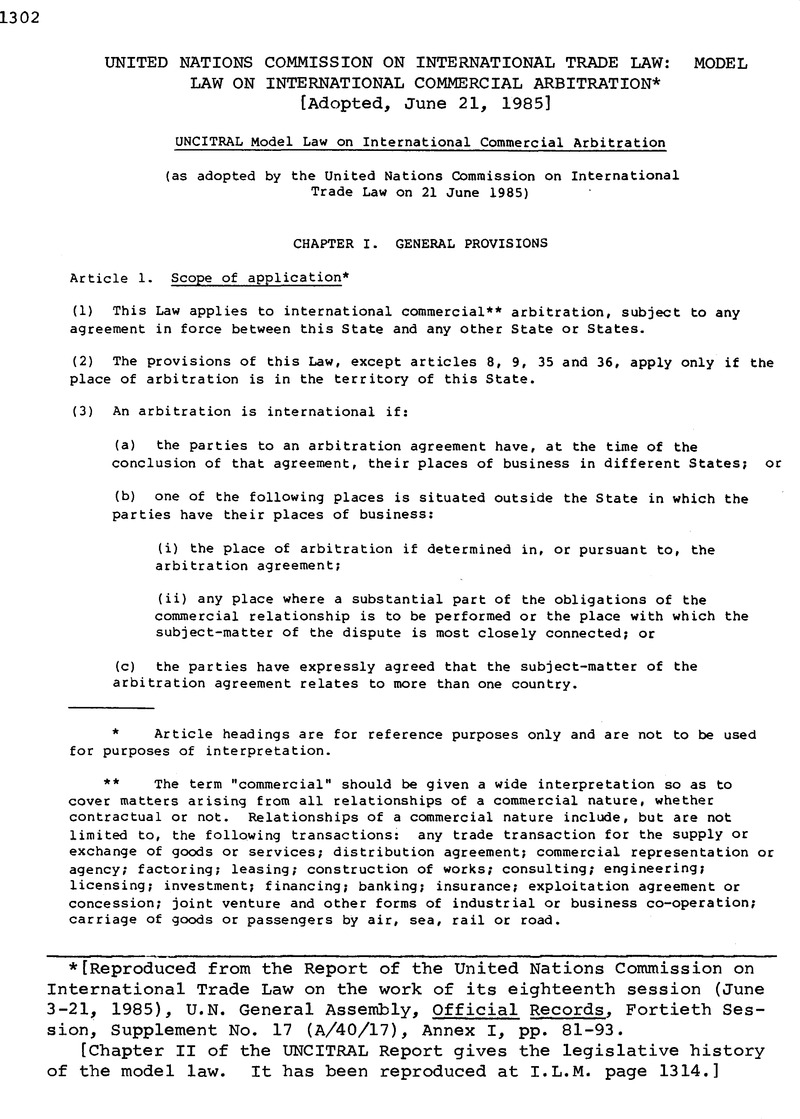No CrossRef data available.
Article contents
United Nations Commission on International Trade Law: Model Law on International Commercial Arbitration
Published online by Cambridge University Press: 20 March 2017
Abstract

- Type
- Legislation and Regulations
- Information
- Copyright
- Copyright © American Society of International Law 1985
References
* Article headings are for reference purposes only and are not to be used for purposes of interpretation.
** The term “commercial” should be given a wide interpretation so as to cover matters arising from all relationships of a commercial nature, whether contractual or not. Relationships of a commercial nature include, but are not limited to, the following transactions: any trade transaction for the supply or exchange of goods or services; distribution agreement; commercial representation or agency; factoring; leasing; construction of works; consulting; engineering; licensing; investment; financing; banking; insurance; exploitation agreement or concession; joint venture and other forms of industrial or business co-operation; carriage of goods or passengers by air , sea, rail or road.
* [Reproduced from the Report of the United Nations Commission on International Trade Law on the work of its eighteenth session (June 3-21, 1985), U.N. General Assembly, Official Records, Fortieth Session, Supplement No. 17 (A/40/17), Annex I, pp. 81-93.
[Chapter II of the UNCITRAL Report gives the legislative history of the model law. It has been reproduced at I.L.M. page 1314.]
*** The conditions set forth in this paragraph are intended to set maximum standards. It would, thus, not be contrary to the harmonization to be achieved by the model law if a State retained even less onerous conditions.




